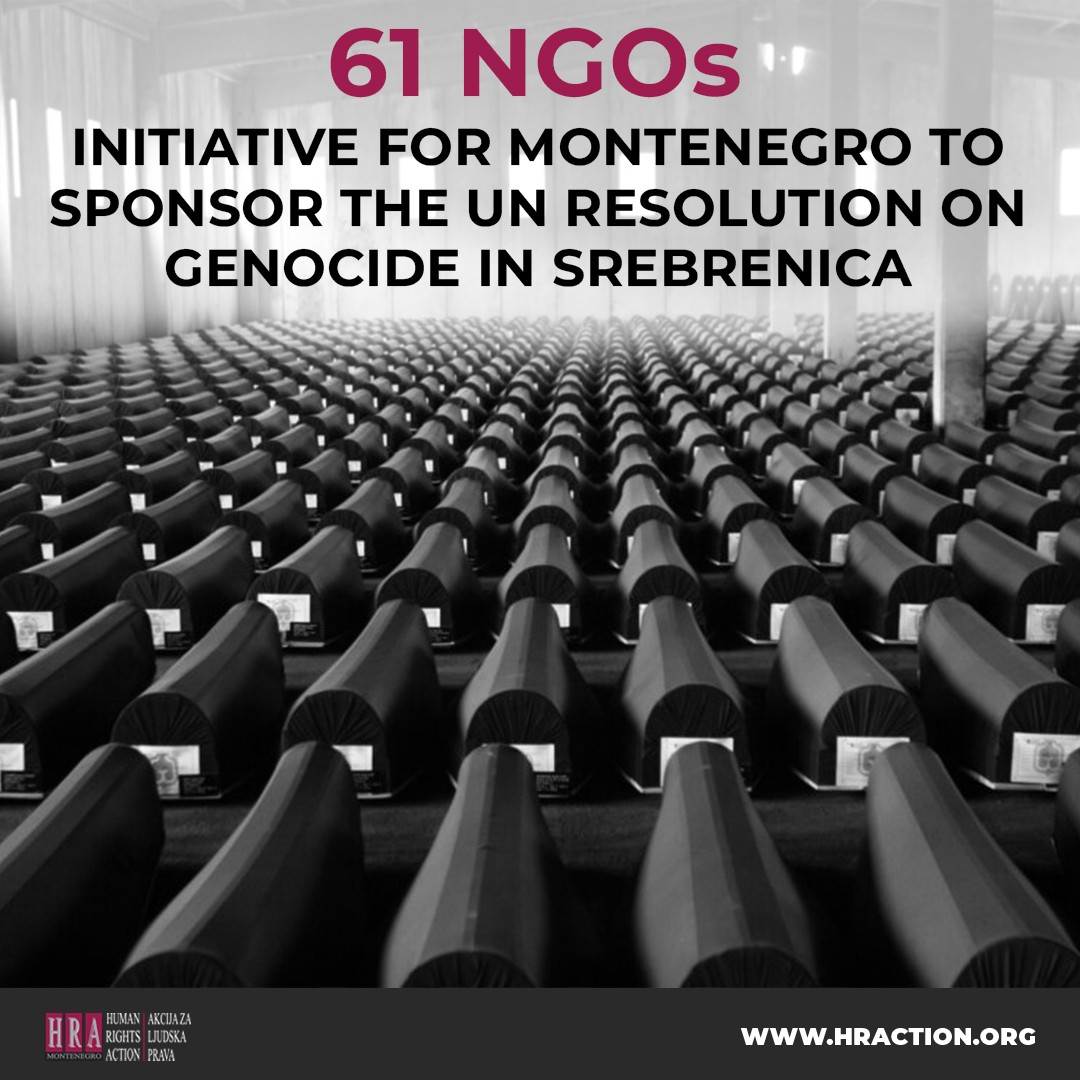
61 NGOs’ Initiative for Montenegro to Sponsor the UN Resolution on Genocide in Srebrenica
17/04/2024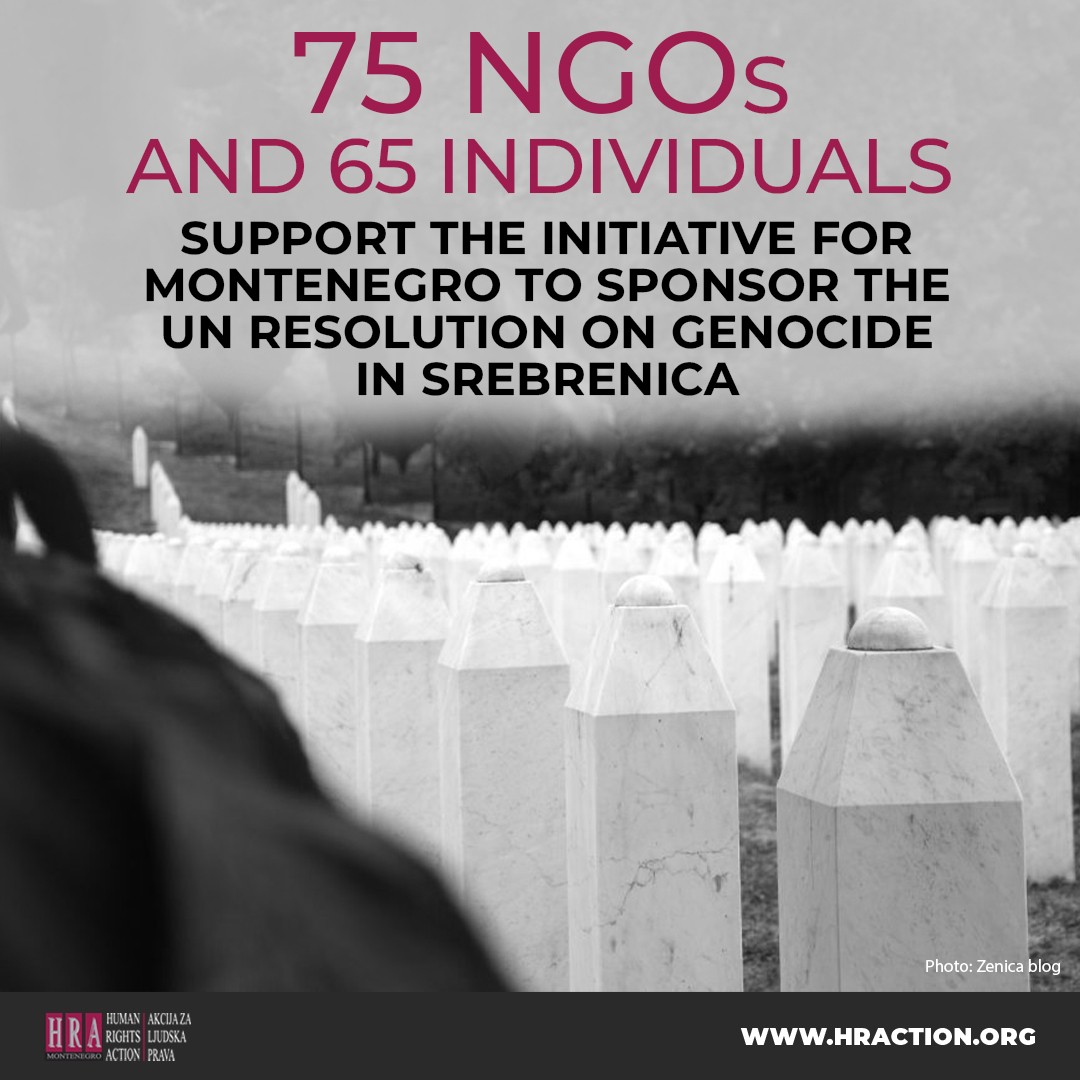
The number of NGOs and prominent individuals who support the Initiative for Montenegro to sponsor the UN Resolution on the Remembrance of the Srebrenica Genocide has increased to 75 NGOs and 65 individuals
22/04/202425 YEARS SINCE THE CRIME IN KALUĐERSKI LAZ
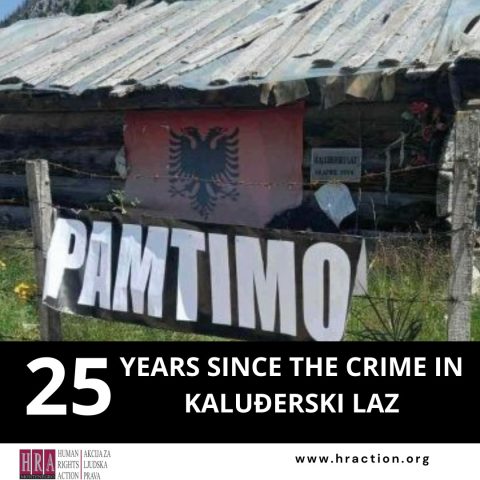
It has been a full 25 years since members of the Army of the Federal Republic of Yugoslavia killed a total of 22 and wounded 7 Albanian civilians in the area of Kaluđerski Laz, near Rožaje. These civilians had fled from war-torn Kosovo to Montenegro during the NATO intervention in 1999. Among the victims were children, women, and the elderly. To this day, no one has been punished for these murders, it has not been established that a war crime was committed, the victims and their families have not been compensated, and there is no monument in Kaluđerski Laz.
The Human Rights Action expects the Supreme State Prosecutor to ensure the re-examination of the prosecution of this crime, for the government to find a way to compensate the victims, and for the local government to ensure that a monument is created for the victims in Kaluđerski Laz.
In 1998-1999, the Rožaje region was a refuge for refugees from Kosovo. Brahim Ljaljić, a resident of Kaluđerski Laz whose son was wounded in the army attack on civilians, testified that for about 20 days before the shooting, columns of refugees from Kosovo—civilians, women, children, and the elderly—passed daily through Kaluđerski Laz. They passed along the road through Kaluđerski Laz over the bridge on Crnja, near the soldiers where the killings occurred. None of the soldiers touched the refugees until April 18, 1999.
It is unknown why the soldiers shot at the refugees that day. No one has been held accountable for the crime due to a poorly conducted investigation. The Higher Court in Bijelo Polje could not identify who among the soldiers shot at the civilians or who gave the order, and acquitted all the accused due to lack of evidence in 2013. This verdict was later confirmed by the Appellate Court. The Higher Court did not even address whether the killing of the refugees in Kaluđerski Laz constituted a war crime. This resulted in the families of the victims not being able to obtain compensation due to the statute of limitations.
Punishing war crimes is important for the victims and their families, but also for the entire society, as it ensures the rule of law and prevents the recurrence of crimes. Responsibility for the crime must be individualized. We call on the Special State Prosecutor’s Office to reconsider the case of the killing and wounding of refugees and locals in Kaluđerski Laz.
One of the surviving refugees, Hadži Ahmeti, spoke about the brutality of the Army of the Federal Republic of Yugoslavia on that day: It was daylight visibility when the shooting began, and it was already dark when it stopped. Before the shooting stopped, I tried to get to my children. I gathered my strength and started… Then I saw, near the place where they were, that boy who was serving water, dead. Later I found out that the boy’s name was Labinot and I got the impression that he was a local from the village where the event happened. I saw that this woman, Nemka, who was raising a white scarf in surrender, was shot in the stomach, and Mursel Brahimaj was shot in the head, so that part of his brain was visible. Hatmona Barjaktari was shot in the leg. A little further towards the stream, I saw Ramiz Brahimaj lying on his back, holding his hands…
It is possible to read the testimonies of the witnesses of this event—locals, one of the survivors from the refugee column, and two members of the Montenegrin police—in the book “Against Oblivion” by the Human Rights Action. Let us show respect for the victims, and familiarize ourselves with the facts about the crimes to know how to prevent them.


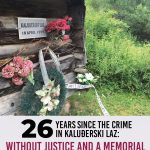
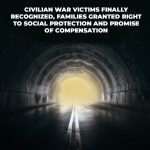


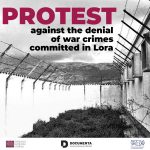
 English
English